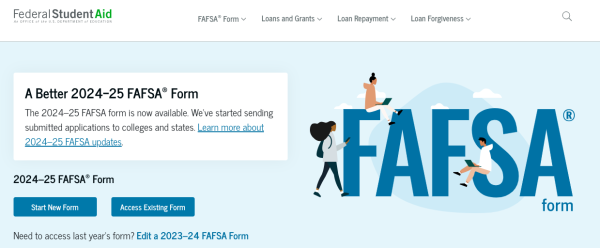Center for Social Research announces split from Calvin
The Center for Social Research recently announced its intentions to split from the university.
The Center for Social Research plans to break away from Calvin’s leadership and form its own independent organization, according to a Feb. 8 statement. For reasons such as distancing in compatibility and the desire for growth beyond their current ability, CSR and Calvin have begun the process of CSR branching away and understanding the practicalities of what the change will look like.
CSR Director Neil Carlson and other officials declined to comment on the specific motivation for the abruptness of the split.
It’s not a bad breakup, more of a ‘let’s just be friends
According to Carlson, although he felt like the team needed to be prepared for this scenario as a contingency plan, the decision was not planned ahead of time. “It’s definitely sudden from everyone’s perspective,” he said. Carlson told Chimes that, initially, only four members of the CSR team were in communication with Calvin’s administration about difficulties the group was facing. This was tough, he said, as his team likes to be transparent with each other.
David Wunder, dean for faculty development and research initiatives, is involved with supervisory support for Calvin’s centers and institutes. Wunder told Chimes there were several drivers causing CSR to leave. “They’re extremely entrepreneurial. In order for them to continue to serve clients and do their work as well as they can, living within the business constraints and environment of Calvin University potentially hinders them from succeeding beyond where they’ve already had success,” Wunder said. The recent conversation between CSR and Calvin administration helped both parties realize that CSR needed to separate in order for their work to continue growing, according to Wunder.
Most of CSR’s work is focused on lower-level descriptive analytics of surveys and focus groups, according to Carlson. “Our job is to spin off revenue that allows Calvin to have larger university-type research resources available without having to generate that revenue from tuition or other places,” he said. The center helps a wide variety of clients from many different fields who are trying to make decisions based on social-scientific research, according to their website.
CSR was based on an external organization that faculty had begun separate from Calvin. They were getting demands for sociological studies from community organizations and formed a partnership called Community Research Associates. This moved into the department of sociology founding CSR in 1970. This external model, Carlson said, is similar to what CSR is now likely to become, although the practicalities of what that looks like are still unknown.
Carlson told Chimes the center’s split from Calvin is nothing personal and not related to any specific event or person. “We still have a desire to stay in social and economic proximity with the community; it’s not a bad breakup, more of a ‘let’s just be friends,’” he said. “We have no criticism of anyone specifically, there’s no nefarious backstory from our perspective. It’s not about the personalities; it’s about the system.”
Carlson told Chimes there was a “basic administrative incompatibility” that led to the decision, but chose not to elaborate on it until all the parties involved are willing to share more information. However, he did say there were dozens of small causes adding up, such as feeling pressure to be more like a consulting firm, a lack of access to funding and wanting to be more diverse and inclusive. “This little crisis just opened our eyes on our team and the administration’s that this is just going to keep happening, we don’t really fit well anymore,” he said.
Wunder said there has been great cooperation between Calvin’s administration and CSR. Calvin is doing everything they can to help CSR get started on their own through things like legal support and marketing and branding, Wunder told Chimes. “There’s a hope to remain in partnership and that the relationship between Calvin and CSR will continue,” he said. “It’s going to look different, but I can certainly imagine Calvin faculty still partnering with CSR for research projects, student’s plugging into internships.”
Although Calvin’s funding of the CSR has decreased in recent years, the center has grown revenue from external projects and clients. According to Carlson, CSR has grown their revenue from about $30,000 annually before he joined the team in 2004 to $700,000 currently. “They’ve gone from most of their operating budget coming from Calvin funds on an annual basis to no support from Calvin, in terms of operating budget. It’s very impressive,” Wunder said.
Carlson said that while he regrets the way the split happened, he’s very excited for the potential and the opportunities that CSR will have. “We might get better facilities, collocated with others … there may be shrinkage in the spots available to Calvin because we’re looking at other institutions as well,” he said. “We will now have the freedom to grow beyond what we have right now.”








